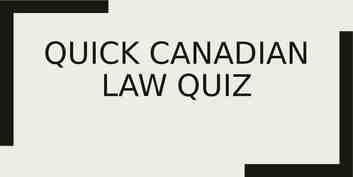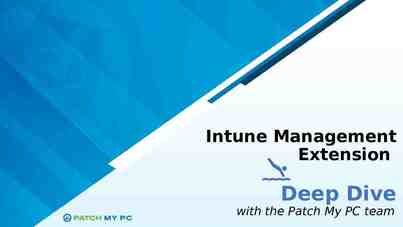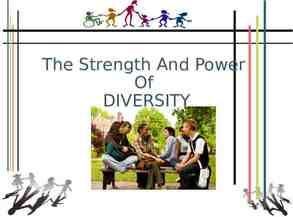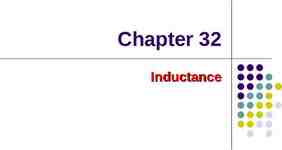BUSINESS ETHICS
25 Slides1.82 MB

BUSINESS ETHICS

BUSINESS ETHICS "Let me appeal to your sense of doing things my way" Cartoon by P.C. Vey Copyright 2004, Harvard Business Review

BUSINE SS ETHICS Is this a “Good” Code of Ethics? Would it help your Employees do the “Right Thing?” What Company published this Code of Conduct and got an Award for it?

“Relativity applies to Physics, not Ethics” To be “Successful,” does a Business have to “Act Ethically?” How does a Business “Act Ethically?” Who decides whether a Business is “Acting Ethically?”

A new Product has not yet been formally approved nor have funds been allocated, but everything looks fine. Meeting the delivery schedule won’t be easy. Wanting to get started, you start negotiating with a supplier. What do you tell that supplier? This is a 'hot' program for both of us. Approval is imminent. Let's get the preliminary work underway now The program is a 'go'. I want you under contract as soon possible as Start work now and we’ll cover your costs when Administration finishes the paperwork If you want to be part of the team important great new product, you’ll have to shoulder some of the start-up costs

BUSINESS ETHICS Is this the Right Answer? Maximize Shareholder Value and Everything will be Fine! Doesn’t Solving Ethical Dilemmas use Time that is better spent making Sales? If We tell our Shareholders that We’ll Maximize their Value, What do We tell our “Stakeholders?”

WHERE DO ETHICS MATTER? In a Court Room: Legal Implications Financial Markets: Reliability of Information Human Resources Markets: How to Attract and Retain the Best and Brightest

After 3 months on the job, you learn an employee falsified her employment application: she doesn’t have a college degree. As her boss, what do you do? Fire Her Immediately Overlook it, She’s doing a Great Job Balance the Omission's Severity with the Great Job she’s doing plus her Age and Ethnicity Contact HR and Determine Company Policy

UNETHICAL BUSINESS PRACTICES 1. 2. 3. 4. 5. 6. 7. Abusive or Intimidating Behavior Accurate but Incomplete Disclosures Discrimination against Protected Class Receiving/Offering Bribes, Kickbacks or Incentives Theft/Fraud: Expense Accounts/Personal Use of Company Property Sexual Harassment Termination without Fair Notice or Cause

ETHICAL ISSUES Three Steps for Analyzing Ethical Issues Is It Legal? Strictly Legal If “No,” Stop and Take Action Perspective Is It Balanced? Compare Risks and Benefits How Does It Make Me Feel? Strictly Personal Perspective What is your Conscience telling You? Are You doing the “Right Thing?”

When one of your male supervisors talks to any female employee, he always calls her, "Babe.” You have overheard him use this term several times. As his manager, should you do anything? No, since no one has complained Yes. Explain to the supervisor that, while he may have no sexual intention, use of “Babe” may cause resentment Yes. Order the supervisor to call an all-hands meeting and apologize for the unintended slights No, because there is nothing wrong with calling a female employee “Babe" or other endearment

BUSINESS ETHICS: APPROACHES COMPLIANCE-BASED Prevent, Detect and Punish Legal Violations INTEGRITY OR VALUES-BASED Define Organizational Values and Encourage Employee Commitment to Ethical Aspirations

CONFLICTS OF INTEREST DEFINITION: Employee’s Personal or Financial Interests Interfere with Employee’s Obligations to Employer THREE TYPES: Financial: Self-dealing or Insider Trading Professional: Outside Commitments infringe on Employer Resources Personal: Family/Employee Conflicts, Nepotism, Fraternization

CONFLICTS OF INTEREST BEST RESPONSE? Preventative Measures: Employees free to have unrelated job activities, but EMPLOYER CAN EXPECT LAWFUL AND CONFLICT-FREE BEHAVIOR Strategically Identify and Manage Potential Conflicts with Written Policies, Standards, Expectations, Training, Monitoring and Constant Communication

Your “Least Effective” Employee has Applied to Transfer to another Department. And the you ever for a Say theManager employee is is theCalling best one you’ve had andReference you’re heartbroken they’re leaving Be Candid - Tell Everything - Leave out Nothing Tell the manager the employee might be a better “fit” in their department instead of yours Duck it: Suggest the Request be handled by HR

STRUCTURES AND SYSTEMS Have a Code of Ethics (Standards), but More Important, have a Code of Conduct (Actions) Communications Network: Formal and Informal (Use the ‘Grapevine’) Processes for Reinforcing and Refreshing Formal Reporting System: Ethics Ombudsperson - Unbiased and Neutral but with Authority

THE BOTTOM LINE Decision-making includes Personal, Organizational and Societal Values (“Layers”) Ethical Values always open to Discussion and Criticism but Build a Fire Wall between “Immutable Standards” and Caseby-Case Exceptions Accept Responsibility for sound Moral Judgments: It’s in Everyone’s Job Description

Communities and their Businesses Organizational Responsibility. Discuss possible roles and activities the venture might take or promote that contribute to the community’s “greater good.” Will these roles or activities make a significant, positive contribution? How will the venture sustain its commitment to these contributions?

ETHICS AND THE LAW Legal Requirements often represent an Ethical Minimum Personal Ethical Standards Generally Exceed Legal Standards ETHICS Laws are Ethical Issues with Societal Implications as interpreted by a Legislature; Personal Ethics have Broader Context and LAW Application

BUSINESS ETHICS A Relative wants to work in your Department. It could be a promotion and a big pay raise. He’s asking for your advice Give him the benefit of your inside knowledge Tell him not to apply Tell him that if he gets the job, he’ll have to move out of your house where he’s been for 9 months Ask him how to deal with possible perceptions of favoritism or nepotism

PERSPECTIVES ON ETHICS Ethical Issues require Persons or Organizations to choose an Action that may get judged as Right or Wrong Business Ethical Issues: Classifications Conflicts of Interest Fairness and Honesty Communications Organizational Relationships

WHY DO ETHICS MATTER? Does “Doing the Right Thing” Matter? To Whom Does it Matter? What are the Costs to Business of Unethical Behavior?

ETHICAL CLIMATE/CULTURE More Important than Ethics Program Begins with leadership (all levels) that includes Ethical Considerations in every Decision: Are We Doing the Right Thing? Focus on What’s best for BOTH Employees and Affected Community (stakeholders) Actions louder than Words/Codes: Consistency and Follow-up Actions

CRITERIA GUIDING ETHICAL ACTIONS Employees won’t be Punished for Questioning Authority Employees will be held Accountable (Punished) for Rule Violations Focus on larger organizational/societal Outcomes; Not Personal/self-Interest Would You wish Others to behave in the same Way if Action affected You?

FORCES THAT SHAPE BUSINESS ETHICS Organizational Culture Personal Ethics Beliefs and Values Moral Development Ethical Framework Organizational Systems Structure Policies and Rules Code of Ethics Reward System Selection and Training Is Decision or Behavior Ethically and Socially Responsible? Founder History Defining Moments Stories of Development External Stakeholders Government Regulations Customers Special Interest Groups Market Forces






